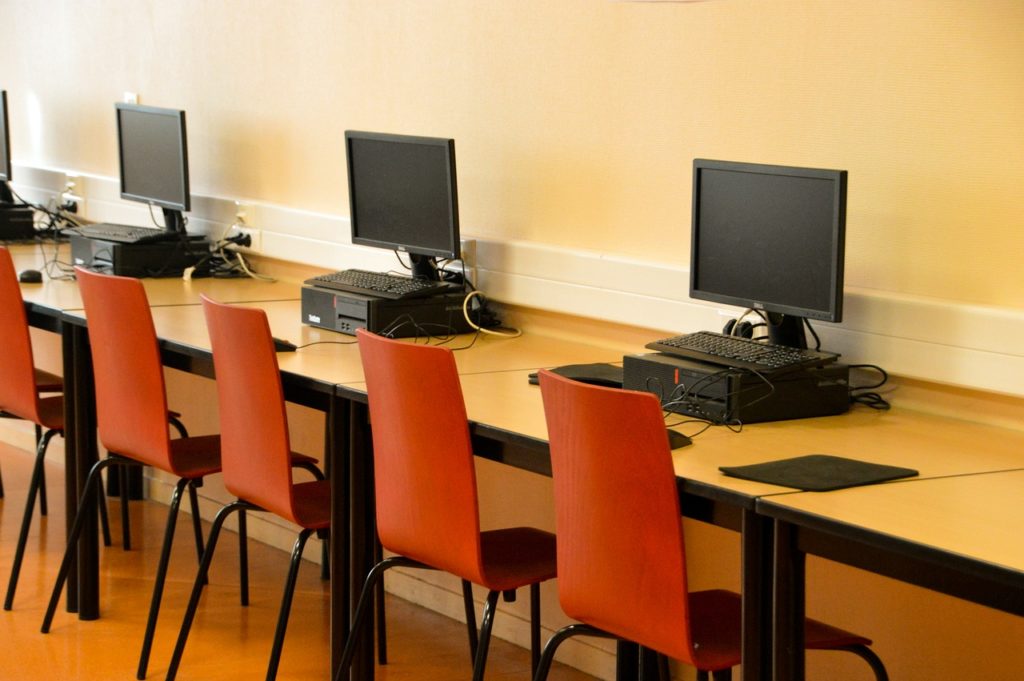In 2015, all member states of the United Nations adopted the UN’s Sustainable Development Goals (SDGs). These goals consist of a series of 17 focus areas, actions, and objectives that aim to build a better world for people and the planet by 2030. Education makes the list at number 4, with the specific wording of the SDG calling for all nations to “ensure inclusive and equitable quality education and promote lifelong learning.”
Afghanistan has a large youth population (nearly two-thirds of Afghans are under the age of 25) as well as one of the world’s highest illiteracy rates. This means that the country takes the issue of education very seriously. However, decades of conflict and instability have left the nation’s education system in serious disarray. As a result, major improvements to education in Afghanistan is a complex and challenging undertaking.

This is where partners like UNESCO come in. Since reopening its Kabul office in 2002, UNESCO has been working with the government of Afghanistan and many other organizations and institutions to help the country rebuild and enhance its education system.
UNESCO’s work focuses primarily on broad, large-scale initiatives in the areas of capacity building, sector wide policies, and strategic planning. Over the last few years in particular, UNESCO has been working closely with the Afghan Ministry of Education to support the country’s progress toward achieving SDG 4 by 2030. Some of the specific ways that UNESCO is supporting Afghanistan’s education system include:
1. Translation of SDG Documents
Simple as it may sound, the task of ensuring that materials related to SDG 4 are available in the first languages of the people who will be working with them is a very important one. UNESCO took responsibility for this by supporting the translation of the SDG 4 Framework of Action, also known as the Education 2030 document, from English into Dari and Pashto. Having this vital guiding document available in local languages allows this resource to be much more accessible to all Afghans working in the field of educational development.
2. Support for Technical and Vocational Training
Under the umbrella of its global Capacity Development for Education 2030 (CapED) program, UNESCO has targeted several specific focus areas regarding the enhancement and improvement of education in Afghanistan. One of these is Technical and Vocational Education and Training (TVET).
In Afghanistan, adults are also in need of educational and skills development opportunities—just as much as children and youth are. TVET-related initiatives help to fill this gap by providing adults, particularly those who are unemployed or underemployed, with targeted training that can improve their prospects in the labor market.
Over the past decade, UNESCO has worked closely with Afghanistan’s Ministry of Education and other entities. Their goal was to help build and improve the government’s capacity to develop comprehensive strategic plans, make and implement effective policies, and monitor and evaluate specific initiatives around TVET.
Specific projects that UNESCO has supported include the development and rollout of the National TVET Policy Strategy; the creation of a TVET management information system; and the establishment of a National TVET Research Center. It has also engaged with smaller-scale initiatives such as labor market research, the creation of new curricular materials, and the development of quality assurance measures.

3. Support for Curricular Reform
Afghanistan’s general education curriculum has not been updated in many years as a result of the conflict and instability of recent decades. It is now in serious need of a major revision. In 2015, Afghanistan’s Ministry of Education sought the support of UNESCO’s Kabul office for this task.
The government’s particular objective for the revision was to align the curriculum more closely to the country’s employment priorities in order to better prepare Afghan youth for work. To support this goal, UNESCO provided funding under its CapED budget to hold a series of National Curriculum Consultations. These sessions resulted in a sector-wide curriculum reform proposal and plan that was prepared and endorsed in 2016 as well as an updated framework for the existing general education curriculum.
Today, team members from UNESCO and the Ministry of Education are finalizing the curriculum competencies laid out in the new framework. They are also developing the necessary syllabi and related teaching and learning materials.
Most recently, the UNESCO office in Kabul organized an eight-day workshop for senior MoE officials working on the new curriculum details. During the workshop, which was held in April 2019 in New Delhi, India, subject specialists from UNESCO and other partners provided technical leadership and support to the breakout working groups focusing on different curriculum subjects.
Over the course of the workshop, syllabi were discussed and developed for a range of subjects including mathematics, science and technology, social studies, information technology, health and physical activity, and languages. With the support of the subject matter experts, working group participants reviewed and updated the scope and sequence of their particular subject’s curriculum. They also identified the major ideas and achievement objectives for each grade level.

